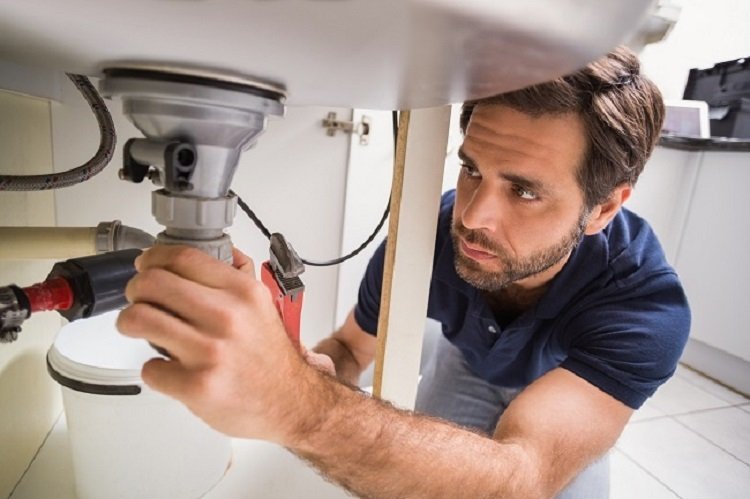Blocked drains are a common household nuisance that can disrupt daily routines and lead to frustrating plumbing issues. Understanding the causes of blocked drains, implementing DIY solutions, and knowing when to call a professional plumber are essential for maintaining a smoothly functioning plumbing system. In this blog, we’ll explore the various causes of blocked drains, provide DIY solutions to tackle minor blockages, and discuss when it’s time to seek professional assistance.
Understanding the Causes of Blocked Drains: Blocked drains can result from a variety of factors, ranging from simple debris buildup to more complex issues. Here are some common causes:
- Hair and Soap Scum: In bathroom drains, hair and soap scum are frequent culprits. Hair can tangle and accumulate, while soap scum can cling to the walls of pipes, both leading to blockages over time.
- Food Waste: In kitchen sink drains, food particles, grease, and oil can accumulate and solidify, causing blockages. Improper disposal of food scraps can exacerbate the issue.
- Foreign Objects: Items like cotton swabs, dental floss, sanitary products, and children’s toys are not meant to be flushed down toilets or rinsed down drains but often end up causing blockages.
- Tree Root Intrusion: Outdoor drains and sewer lines can be susceptible to tree root intrusion. Tree roots seek out sources of water and can penetrate pipes, causing cracks and blockages.
- Pipe Misalignment or Damage: Misaligned or damaged pipes, whether due to shifting soil, corrosion, or age, can obstruct the flow of water and contribute to blockages.
DIY Solutions for Blocked Drains: For minor blockages, there are several DIY solutions you can try before resorting to professional help:
- Boiling Water: Pouring boiling water down the drain can help dissolve grease and loosen minor blockages. This method is particularly effective for kitchen sink drains.
- Baking Soda and Vinegar: Create a natural drain cleaner by pouring a mixture of baking soda and vinegar down the drain, followed by hot water. The chemical reaction can help break down organic matter and clear blockages.
- Plunging: Use a plunger to create suction and dislodge blockages in sink, shower, or bathtub drains. Ensure there is enough water in the fixture to cover the plunger.
- Manual Removal: For hair clogs in shower or bathtub drains, use a drain snake or wire coat hanger to manually remove the blockage. Be sure to wear gloves and exercise caution to avoid damaging the pipes.
- Chemical Drain Cleaners (with Caution): Commercial chemical drain cleaners can be effective for clearing minor blockages, but use them sparingly and follow the manufacturer’s instructions carefully, as they can be harsh on pipes and harmful if misused.
When to Call a Professional: While DIY solutions can often resolve minor blockages, there are situations where it’s best to enlist the help of a professional plumber:
- Persistent Blockages: If you’ve tried DIY methods without success and the blockage persists, it may indicate a more severe underlying issue that requires professional attention.
- Foul Odors or Sewage Backups: Foul odors emanating from drains or sewage backups are red flags indicating a potentially serious plumbing problem. These issues should be addressed promptly by a professional plumber to prevent further damage and health hazards.
- Gurgling Sounds or Slow Draining: Gurgling sounds coming from drains or slow drainage throughout your home can indicate a blockage or obstruction in the main sewer line, which requires professional diagnosis and repair.
- Visible Signs of Damage: If you notice visible signs of damage to pipes, such as leaks, corrosion, or cracks, it’s crucial to seek professional assistance to prevent further deterioration and costly repairs.
- Preventative Maintenance: Even if your drains are currently clear, scheduling periodic professional maintenance can help prevent future blockages and identify potential issues before they escalate into emergencies.
Conclusion:c
Blocked drains are a common issue faced by homeowners, but with a proactive approach and a basic understanding of DIY solutions, you can often resolve minor blockages on your own. However, knowing when to call a professional plumber is equally important, especially for persistent or complex blockages that require specialized expertise. By addressing blocked drains promptly and effectively, you can ensure a smoothly functioning plumbing system and avoid the inconvenience and expense of plumbing emergencies. Remember, when it comes to your drains, prevention and prompt action are key to maintaining a healthy home environment.




